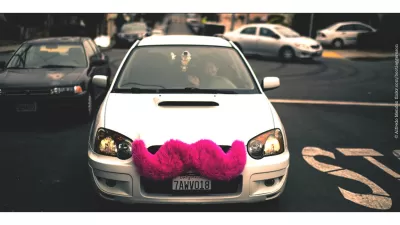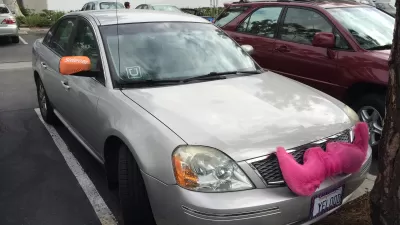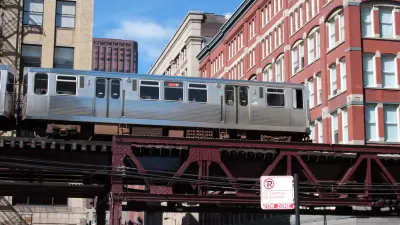According to a new report from the Center for American Progress, technology network companies like Uber and Lyft offer a unique opportunity for low-income users to connect with transit routes and on to greater economic opportunities.

Kevin DeGood, director of infrastructure policy at the Center for American Progress, and Andrew Schwartz, research associate on economic policy at the Center, have written a report exploring the potential of transportation network companies (TNCs) to provide social equity with access to mobility and all the opportunities that entails.
After establishing distance as the greatest barrier to access, DeGood and Schwartz note that TNCs "offer transit agencies the opportunity to experiment with different ways to overcome the last-mile barriers to connect people with the public transit system." The report that follows builds a case to subsidize the use of TNCs like Uber and Lyft for low-income users.
Historically, transit agencies have been unable to address these geographic gaps—especially because extending traditional fixed-route service into neighborhoods is cost prohibitive. Companies such as Uber and Lyft offer transit agencies a way to bridge last-mile gaps efficiently, allowing eligible residents to connect affordably to the public system.
The article describes the unique ability of the Technology platforms of TNCs to make subsidized connections to transit a reality before considering the Metropolitan Atlanta Rapid Transit Authority (MARTA) in the Atlanta region as a theoretical test case.
Angie Schmitt also picked up on the news of the report for Streetsblog USA. Schmitt concludes that it's "interesting to see some analysis of how ride-hail-to-transit subsidies for commuters might work, [but] it’s still hard to discern a concrete benefit compared to plain old bus and train service."
FULL STORY: Can New Transportation Technologies Improve Equity and Access to Opportunity?

Planetizen Federal Action Tracker
A weekly monitor of how Trump’s orders and actions are impacting planners and planning in America.

Congressman Proposes Bill to Rename DC Metro “Trump Train”
The Make Autorail Great Again Act would withhold federal funding to the system until the Washington Metropolitan Area Transit Authority (WMATA), rebrands as the Washington Metropolitan Authority for Greater Access (WMAGA).

DARTSpace Platform Streamlines Dallas TOD Application Process
The Dallas transit agency hopes a shorter permitting timeline will boost transit-oriented development around rail stations.

Supreme Court Ruling in Pipeline Case Guts Federal Environmental Law
The decision limits the scope of a federal law that mandates extensive environmental impact reviews of energy, infrastructure, and transportation projects.

Texas State Bills to Defund Dallas Transit Die
DART would have seen a 30% service cut, $230M annual losses had the bills survived.

Bikeshare for the Win: Team Pedals to London Cricket Match, Beats Rivals Stuck in Traffic
While their opponents sat in gridlock, England's national cricket team hopped Lime bikes, riding to a 3-0 victory.
Urban Design for Planners 1: Software Tools
This six-course series explores essential urban design concepts using open source software and equips planners with the tools they need to participate fully in the urban design process.
Planning for Universal Design
Learn the tools for implementing Universal Design in planning regulations.
Roanoke Valley-Alleghany Regional Commission
City of Mt Shasta
City of Camden Redevelopment Agency
City of Astoria
Transportation Research & Education Center (TREC) at Portland State University
US High Speed Rail Association
City of Camden Redevelopment Agency
Municipality of Princeton (NJ)





























